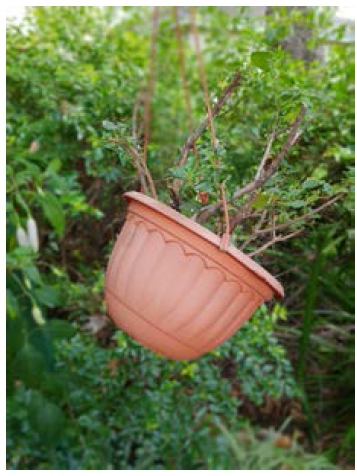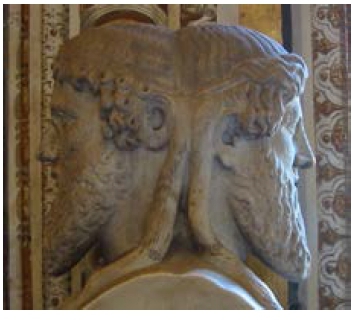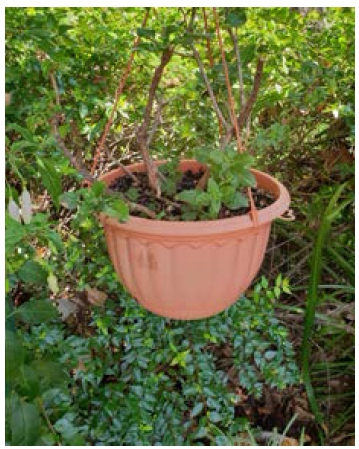Services on Demand
Article
Indicators
Related links
-
 Cited by Google
Cited by Google -
 Similars in Google
Similars in Google
Share
South African Dental Journal
On-line version ISSN 0375-1562
Print version ISSN 0011-8516
S. Afr. dent. j. vol.74 n.1 Johannesburg Feb. 2019
EDITORIAL
WG Evans
Managing editor Email: bill.evans@wits.ac.za

"Extreme is easy.. balance is hard." - Colin Wright, author.
I look out the window and see one of our hanging flower pots precariously suspended at a severe cant...one of the supports has given way. Fixing will require restoring balance, a component critical in life.

The Hippocratic Oath loomed large at the end of last year when new graduates in the healing arts solemnly committed to balance the age old principles of good practice with their extracurricular lives. The oldest partial fragments of The Oath date to about 275 AD whilst the oldest complete version is held in the Vatican Library, thought to be from the 10th-11th century.

The most frequently cited version may be one dated to 1595, which appears in Koine Greek with a Latin translation. Of course the Oath has undergone several modifications over the years.
Of particular regret to me, as an academic, has been the deletion of a promise that appeared in the 1923 Loeb edition:
"To hold my teacher in this art equal to my own parents; to make him partner in my livelihood; when he is in need of money to share mine with him;"
I am sure that many colleagues would cheerfully recommend the reinsertion of that clause! But it is not there that we focus. for the next phrase embodies some deeply relevant admonitions :
" to consider his family as my own brothers, and to teach them this art, if they want to learn it, without fee or indenture; to impart precept, oral instruction, and all other instruction to my own sons, the sons of my teacher, and to indentured pupils who have taken the physician's oath..."
The modern version administered to Faculty of Health graduates at the University of the Witwatersrand includes this commitment :
"That I will not employ any secret method of treatment, nor keep secret from my colleagues any method of treatment that I may consider beneficial."
So we are enjoined to share knowledge freely without expectation of recompense in any form. Is it then a little ironical that the phrase "Publish or Perish" has become such a powerful incentive in academe? The scramble to be first to publish a new concept is well understood ...but that automatically implies that the details may have to be kept secret until the printed word announces the innovation.
Do we recognise a slight paradox? How many patients may have benefitted from the new knowledge whilst the researcher waited to first have the paper published?
A thoughtful paper in the pages of this issue debates aspects of research misconduct and inter alia explores another facet of this equation... as for example ...whilst under pressure to publish, a researcher "steals" the concepts of a colleague... formally stated as: the appropriation of another person's ideas, processes, results, or words without giving appropriate credit. In its worst form this is described as Plagiarism. I used the word "equation" for that implies that there should be a balance, one side against the other.
The paper on research misconduct handles the problem with precision, providing clear guidelines on how to avoid the traps. The Journal has a defined responsibility to ensure that all publications satisfy the strict criteria and it is appropriate that we sincerely acknowledge the work and commitment of our panel of reviewers who are largely tasked with judging the papers submitted. Their contribution cannot be overstated ...and our indebtedness to them is considerable.
Perhaps at this time of the year our thoughts turn to resolutions... often a self promise on improving performance. It may have been in Babylon that the practice first arose. At the beginning of their year (actually March) they held a prolonged celebration over twelve days, known as Akitu, when promises were made to the gods that debts would be paid and any borrowed articles would be returned. That was some 4,000 years ago ...but resonates.
The Romans also had a custom of resolutions ...in January, named after the god Janus, he with two faces looking forward and backward. in one direction back over the old year, the other contemplating the new.

A good omen for contemplative resolution making! But contemporary research has shown that probably only 8% of resolutions are kept! And many are simply repeated year after year.
Perhaps it is time to restore balance, not only to our flower basket, but to all our endeavours. whether striving to avoid voids in root canal obturation, to understand the afflictions of drug dependence, to explore new technologies to assist community oral health. all considered in this first issue of 2019! Every best wish for a balanced year of achievement!















